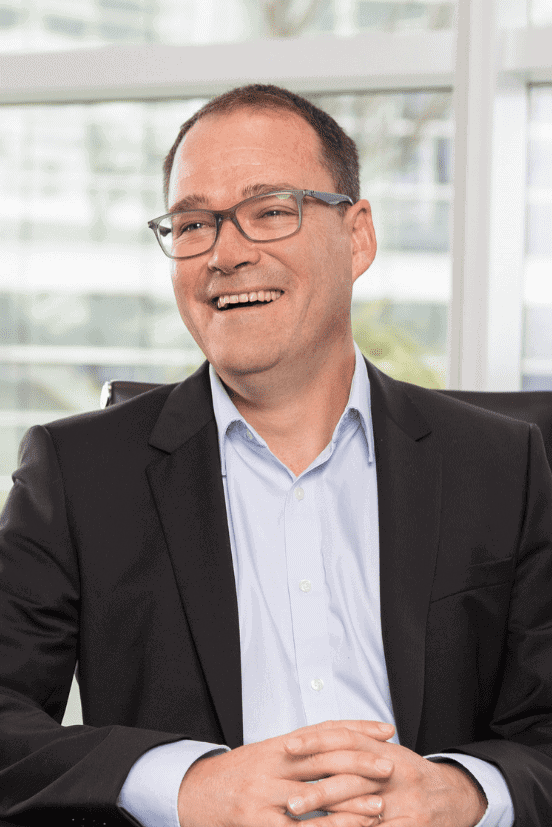Domicile selection is vitally important, if private capital managers are to achieve scalability and enjoy fundraising success. Speaking at the Guernsey Fund Forum, Kobus Cronje, Managing Director for Guernsey, discusses some of the trends shaping the private capital industry and outlined what firms should be doing when choosing a suitable fund domicile.
Private capital faces tough times ahead, but there are opportunities
Double digit inflation and monetary policy tightening have not been kind to private equity strategies, as the costs of borrowing and running a portfolio company continue to rise. With returns starting to decline as well, fundraising is getting harder for GPs. Data from Pitchbook found that private equity fundraising in the first three quarters of 2022 totalled $119 billion, a sizeable drop from the $197.4 billion during the same period in 2021, [1] with emerging managers bearing the brunt of this slowdown.
Meanwhile, private debt is one of the fastest growing alternative asset classes, having accumulated $172 billion of inflows in 2022, bringing its AUM (assets under management) to $1.2 trillion. [2] This resilience comes as more private debt managers provide financing to companies, as banks continue to scale back their loan books. Elsewhere, in the US, private debt managers are being tapped for debt capital by private equity firms, as an alternative to syndicated bank loans and high yield bonds.[3]
Although some private capital strategies are under pressure, there are a number of investment opportunities available, especially around sustainability. Governments are demanding that the private sector does its part to help countries meet their net zero obligations, but there is a clear financing void. Increasingly, however, this funding vacuum is being filled by private capital managers. Consequentially, we are seeing ESG (environmental, social, governance) conscious managers invest into a wide range of sustainable products and technologies, including battery storage, forestry, plant-based foods and 3D meat printing. With investors taking a growing interest in ESG, this renewed focus on sustainability will be critical if managers are to win mandates.
Irrespective of how compelling a manager’s performance track record is, investors will reject a fund if it is domiciled in a jurisdiction which falls short of their expectations or does not meet international best practices. As competition for investor capital grows, managers need to think very carefully about where they domicile their funds. So what should managers be prioritising during domicile selection?
Domicile selection has never been more important
Before choosing a domicile, managers need to assess whether a jurisdiction is stable, reputable and transparent. At a time when certain offshore fund centres are coming under scrutiny from policymakers, managers should only consider domiciles which are well-regulated and provide strong protection for investors. Managers must also seek assurances that the regulations are compatible with the investment strategy and structure of their funds.
The Guernsey Financial Services Commission (GFSC) adopts a regulatory framework, which is both proportionate and flexible. For instance, the Protection of Investors Law not only provides a regulatory structure for collective investment schemes, but it supports investor protection. Elsewhere, Guernsey has adopted the Alternative Investment Fund Managers Directive (AIFMD), which enables funds to be distributed into the EU through the national private placement regime.
Costs are a factor too when selecting a domicile, especially in today’s challenging market. This is because initial fund-set up and ongoing maintenance (i.e. registration, administration, accounting, legal fees, etc.) costs in a number of jurisdictions can be quite high, which is sometimes a drag on returns. The costs of establishing in Guernsey, however, are competitive.
Additionally, Guernsey has a tax neutral status – so investors and managers are not subject to additional taxes, when managing funds in the jurisdiction. While some offshore hubs have faced criticism for their opaque tax systems, Guernsey has been on the Organisation for Economic Cooperation and Development’s (OECD) ‘White List’ of approved jurisdictions since 2009 and has signed up to a series of tax information exchange agreements (TIEAs).
With ESG being increasingly incorporated into managers’ investment strategies, fund domiciles need rules and regulations in place facilitating sustainable investing. Again, Guernsey is widely considered to be a leader here.
Not only did the jurisdiction oversee the establishment of the world’s first regulated green fund product in 2018, but the Guernsey Green Fund Rules have been updated to include two new taxonomies and are now aligned with the EU’s Sustainable Finance Disclosure Regulation (SFDR), so as it make it easier for managers to raise money in the EU.
Access to high calibre service providers – such as fund administrators, law firms, auditors and custodians, together with a wide range of NED (non-executive director) talent is also critical if managers are to thrive. Guernsey has an extensive talent pool of service providers and NEDs, who can support the bespoke requirements of a diverse range of fund structures and strategies.
With so much competition in the market investors will fail managers if they do not like their choice of domicile. Choosing a domicile, which has the backing of institutional allocators, is therefore essential.
Why JTC
JTC opened an office in Guernsey in 2011 and is a leading provider of both institutional and private client services from this jurisdiction. JTC’s team of experts have a deep understanding of what our clients need, namely to deliver investment structures that work for investors.
Guernsey has a wide variety of fund structures to suit each investment strategy and JTC has a long track record of deploying these successfully in partnership with our clients. In addition to its world class Fund Administration business in Guernsey, JTC also offers a third party non-EU AIFM through JTC Global AIFM Solutions and a Share Registrar offering specialising in London Listed Investment Funds.
[1] Pitchbook – October 19, 2022 – Private equity fundraising challenges set up a tough 2023
[2] Preqin – December 14, 2022 -Brisk fundraising for private debt in 2022
[3] Pitchbook – February 23, 2023 – Momentum for private debt funds is building

